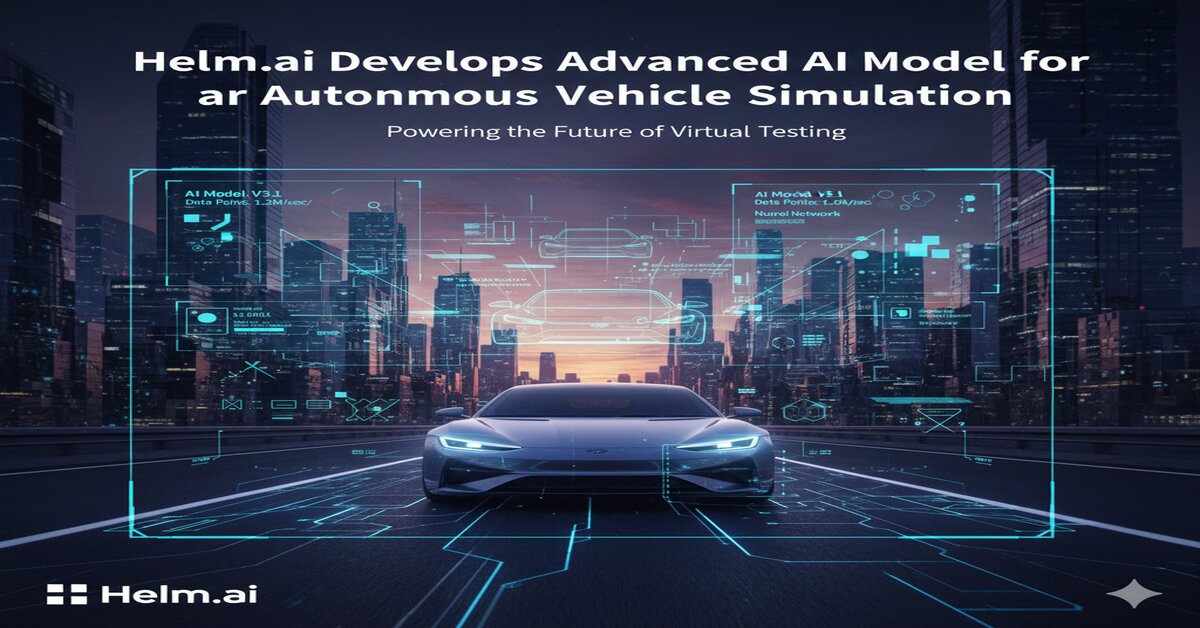Helm.ai, a leading provider of AI software for ADAS, autonomous driving, and robotics, has launched WorldGen-1, a pioneering multisensor generative AI foundation model aimed at simulating the entire autonomous vehicle (AV) stack. This innovative model is designed to synthesize realistic sensor and perception data across various modalities and perspectives. It can also extrapolate sensor data from one modality to another and predict the behavior of the ego vehicle and other agents within the driving environment, significantly easing the development and validation of autonomous driving systems.
WorldGen-1 employs advanced generative deep neural network (DNN) architectures alongside deep teaching, an unsupervised training methodology. The model has been trained on thousands of hours of driving data, covering every layer of the autonomous driving stack, such as vision, perception, lidar, and odometry. This extensive training allows the model to generate highly realistic sensor data for various components, including surround-view cameras, semantic segmentation at the perception layer, and both front view and bird’s-eye view lidar. It also accurately maps the ego vehicle’s path in physical coordinates, thereby replicating potential real-world situations from the perspective of a self-driving vehicle.
Helm.ai’s CEO and co-founder, Vladislav Voroninski, emphasized the model’s scalability and cost-efficiency, attributing it to the integration of generative AI architectures with the company’s deep teaching technology. “WorldGen-1 is designed to bridge the sim-to-real gap for autonomous driving, unifying and streamlining the development and validation processes for advanced ADAS and Level 4 systems. This tool is poised to accelerate development, enhance safety, and reduce the disparity between simulation and real-world testing,” Voroninski stated.
A standout feature of WorldGen-1 is its ability to extrapolate from real camera data to various other modalities. This capability ensures the transformation of existing camera-only datasets into comprehensive synthetic multisensor datasets. Beyond sensor simulation and extrapolation, WorldGen-1 can predict the behaviors of pedestrians, other vehicles, and the ego vehicle within the surrounding environment. This predictive capability allows the AI to create a wide array of potential scenarios, including rare and complex corner cases, modeling multiple outcomes based on the observed input data.
Voroninski further elaborated, “Generating data with WorldGen-1 is akin to creating a diverse collection of digital twins of real-world driving environments. These digital environments are populated with intelligent agents that think and predict like humans, enabling us to address the most intricate challenges in autonomous driving.”
By leveraging generative AI and deep teaching, Helm.ai’s WorldGen-1 offers a revolutionary approach to AV simulation, aiming to make autonomous driving development more efficient, safer, and closer to real-world applicability.







